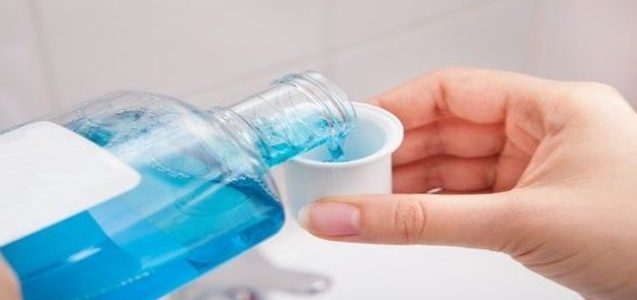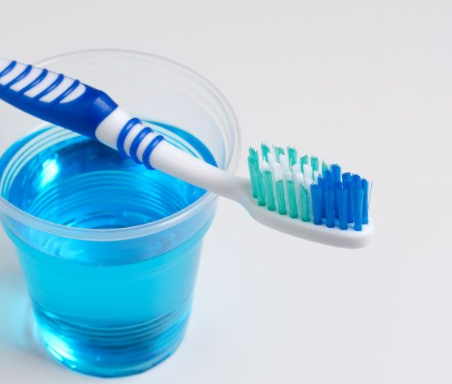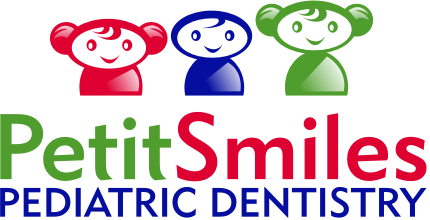
The Role of Mouthwash in Children’s Dental Care
Introduction
Oral hygiene plays a crucial role in maintaining overall health, and instilling good dental habits in children from a young age can set the foundation for a lifetime of healthy teeth and gums. Alongside brushing and flossing, mouthwash can be an effective tool in promoting oral health. Here at Petit Smiles, we will delve into the benefits and considerations of using mouthwash for children, addressing its potential advantages, types of mouthwash suitable for young ones, proper usage, and potential concerns. Remember to follow us on Instagram for more related information.
The Benefits of Mouthwash for Children
Aiding in Plaque Removal: Plaque buildup on teeth can lead to cavities and gum problems. Mouthwash can help to loosen and remove plaque, contributing to a cleaner mouth and a reduced risk of dental issues.
Preventing Tooth Decay: Some mouthwashes contain fluoride, a mineral that strengthens tooth enamel and helps prevent cavities. Using fluoride-containing mouthwash can be especially beneficial for children who might still be learning optimal brushing techniques.
Freshening Breath: Children, like adults, can experience bad breath. Mouthwash with a pleasant flavor can help combat this issue, boosting a child’s confidence and promoting good social interactions.
Reaching Hard-to-Brush Areas: Mouthwash can reach areas that might be difficult for children to clean thoroughly with a toothbrush or floss. This makes it a valuable addition to their oral hygiene routine.
Instilling Healthy Habits: Incorporating mouthwash into a child’s daily routine can teach them the importance of comprehensive oral care, setting the stage for a lifetime of good dental habits.
Types of Mouthwash for Children
When selecting a mouthwash for children, it’s essential to choose one that is suitable for their age and needs. Here are the main types of mouthwash to consider:
Fluoride Mouthwash: This type of mouthwash contains fluoride, which helps in strengthening tooth enamel and preventing cavities. Parents should ensure that the fluoride concentration is appropriate for the child’s age to prevent excessive ingestion.
Alcohol-Free Mouthwash: Alcohol-based mouthwashes might be too harsh for children, as they can cause discomfort or a burning sensation. Opting for alcohol-free versions is a safer choice.
Antibacterial Mouthwash: This type of mouthwash can help reduce bacteria in the mouth, contributing to improved oral health. It’s particularly useful for children who are prone to dental issues.
Child-Friendly Flavors: Mouthwashes with appealing flavors such as mint, fruit, or bubble gum can make the experience more enjoyable for children, encouraging consistent use.

Proper Usage of Mouthwash for Children
To make the most of mouthwash while ensuring safety, parents should follow these guidelines:
Supervision: Younger children should always be supervised while using mouthwash to prevent accidental swallowing.
Correct Amount: Instruct children to use the recommended amount of mouthwash, typically a small cupful, to avoid excessive ingestion.
Spitting, Not Swallowing: Emphasize the importance of spitting out the mouthwash after swishing. Swallowing mouthwash, especially fluoride-containing ones, can lead to stomach discomfort.
Timely Use: Encourage children to use mouthwash at an appropriate time, such as after brushing their teeth. This ensures that it complements their oral hygiene routine.
Considerations and Potential Concerns
While mouthwash can be beneficial, there are a few considerations to keep in mind:
Age Appropriateness: Not all mouthwashes are suitable for young children. Some formulations might be more appropriate for teenagers due to their stronger compositions.
Fluoride Control: If your child already consumes fluoride from other sources like toothpaste and water, be cautious with the fluoride concentration in their mouthwash to avoid exceeding recommended levels.
Allergic Reactions: Check the ingredients for any potential allergens before introducing a new mouthwash to your child.
Professional Guidance: It’s always a good idea to consult a pediatric dentist before incorporating mouthwash into a child’s routine, especially if they have specific dental conditions.
| Point | Description |
|---|---|
| Benefits of Mouthwash for Children | – Plaque Removal<br> – Tooth Decay Prevention<br> – Breath Freshening<br> – Reaching Hard-to-Brush Areas<br> – Instilling Healthy Habits |
| Types of Mouthwash for Children | – Fluoride Mouthwash<br> – Alcohol-Free Mouthwash<br> – Antibacterial Mouthwash<br> – Child-Friendly Flavors |
| Proper Usage of Mouthwash for Children | – Supervision for Young Children<br> – Correct Amount<br> – Spitting, Not Swallowing<br> – Timely Use |
| Considerations and Potential Concerns | – Age Appropriateness<br> – Fluoride Control<br> – Allergic Reactions<br> – Professional Guidance |
| Conclusion | – Mouthwash as Valuable Addition<br> – Benefits for Oral Health<br> – Selection and Education |
This table provides a concise overview of the main points covered in the article, making it easy for readers to grasp the key information at a glance. However, we always recommend to get in touch with any of our pediatric dentists at Petit Smiles.
Conclusion
Mouthwash can be a valuable addition to a child’s oral hygiene routine when used appropriately. Its benefits in plaque removal, cavity prevention, and instilling healthy habits make it worth considering. By selecting the right type of mouthwash and teaching children the correct usage, parents can contribute to their children’s overall oral health, setting them on a path towards a bright smile and a healthy mouth for years to come.
If you have more specific questions or concerns, remember that you can contact us and find us anytime at any of our Dental Offices located in Coral Gables and Doral, FL.


